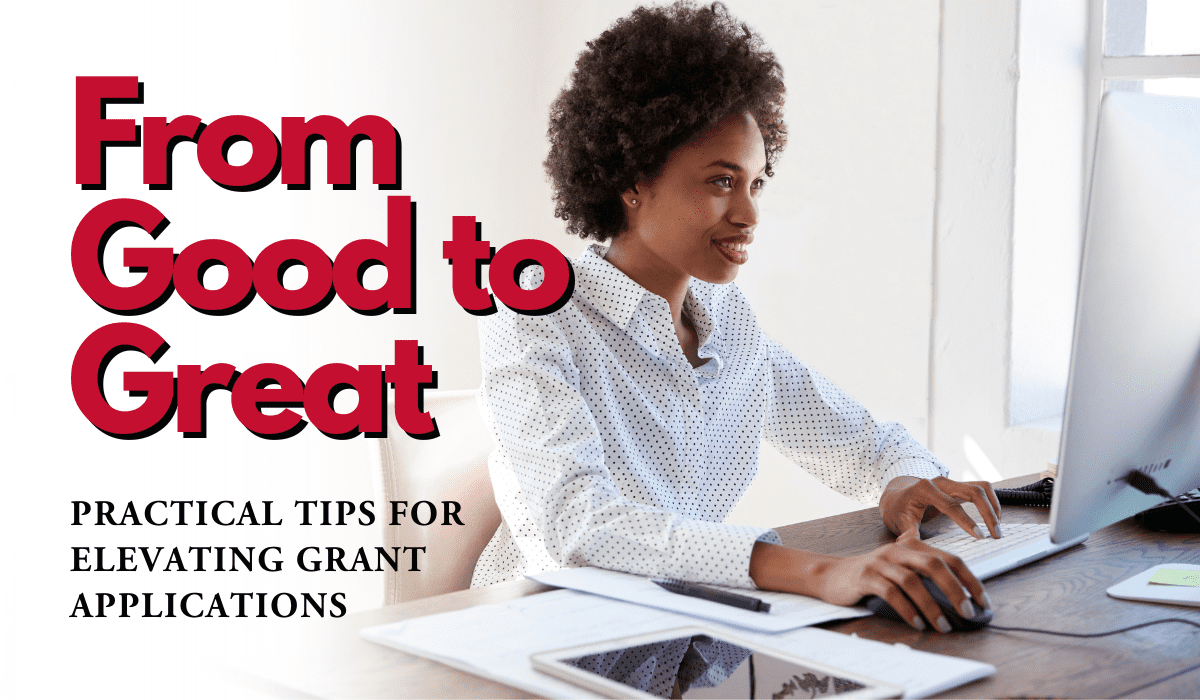Q&A with COMPASS Coordinating Center Directors
Our first contributors need no introduction. Well-known in their respective fields, Patrick Sullivan, PhD, DVM, Nic Carlisle, JD, and Samira

This article delivers key strategies for crafting compelling grant proposals, emphasizing alignment with funders’ goals, clarity, and detailed project planning. It’s a resource for anyone looking to secure funding and support for their impactful initiatives.
 Grant Writing Essentials
Grant Writing Essentials
Navigating the intricate world of grant applications can feel like an overwhelming journey, yet it’s a crucial step for organizations striving to make a meaningful impact. Whether you’re aiming to combat health challenges, address social issues, or support community projects, securing grant funding is a vital lifeline that can propel your initiatives forward.
Drawing from our reviewers’ observations of common mistakes, this guide offers targeted insights for improving your application. Suitable for both new and experienced grant seekers, our tips aim to refine your proposal to impress funders. Discover how to transform your application from good to exceptional, giving your programs the recognition and support they need. Understand the Mission
Understand the Mission
Dive deep into the Gilead COMPASS Initiative® goals before starting your application. Your proposal should reflect a strong alignment with their mission to combat the HIV/AIDS epidemic in the Southern United States. Highlighting this alignment will make your application resonate with the grant’s objectives.
Example:
“Our project directly aligns with the Gilead COMPASS Initiative® by focusing on reducing stigma and increasing access to care in rural communities, mirroring the Initiative’s goals to combat HIV/AIDS in the Southern U.S. through education, community involvement, and support services.“

Be Clear and Concise
Speak plainly and directly when describing your project or organization. Don’t presume grant reviewers are experts in your field. Avoid using technical jargon and complex terms that might not be widely recognized. Your aim is to share your enthusiasm and the significance of your project in a manner that’s accessible to all.
Example:
Instead of saying, “We engage in a multitude of interventional strategies to ameliorate the conditions conducive to the propagation of the HIV/AIDS epidemic,” use “We use targeted strategies to fight HIV/AIDS, including community education and free testing services.

Explain Growth and Community Benefit
Clearly articulate how the grant will help grow your current program. Detail how expanding your project will allow you to reach more people or provide better support to your community. Demonstrating a plan for growth or enhancement shows ambition and a clear vision for the future.
Example:
“Receiving this grant will enable us to expand our mobile clinic services from serving two to five rural towns, directly benefiting an additional 1,000 individuals annually by providing accessible HIV testing and counseling services.”

Highlight Your Impact and Sustainability
Show the tangible results your project has achieved or aims to achieve, using specific examples and quantifiable data. Additionally, emphasize the sustainability of your project. Explain how your initiative will continue to make a difference in the long term, beyond the grant period. This shows foresight and commitment to lasting change.
Example:”Over the past three years, our program has increased HIV awareness for over 5,000 individuals, with 80% reporting they now feel more empowered to seek testing and treatment. We plan to sustain this impact by training community health workers to continue outreach efforts, ensuring long-term community support.”

Provide a Detailed Budget Breakdown
Offer a comprehensive budget that outlines how you plan to allocate the grant funds. Be transparent about each expense, showing how it contributes to your project’s goals. A well-prepared budget demonstrates your project’s financial viability and your organization’s capacity for responsible fiscal management.


Tell Your Story
People are drawn to compelling narratives. Share your journey in an engaging way that combines emotional appeal with intellectual engagement. This approach can make your application stand out by humanizing your efforts and making your project’s benefits more relatable.
Example:
“When we started our journey five years ago, we were motivated by the story of a single mother in our community who was struggling to access HIV care. From our humble beginnings of hosting small support groups in our local community center, we’ve grown into a comprehensive program offering education, testing, and support services. Her story continues to inspire our mission and reminds us of the impact one person can make.”

Follow Instructions Carefully
Adhere strictly to the application guidelines, including formatting, word limits, and submission deadlines. Paying attention to these details shows your professionalism and can significantly influence your application’s success.
Example:
If the guidelines specify a 500-word project description, carefully craft your narrative to fit within this limit, focusing on clear, impactful statements and ensuring every word contributes to your overall message.
Forge Ahead with Confidence in Your Grant Writing Journey!
Incorporating these topics into your application can provide a well-rounded and compelling case for your project, increasing your chances of success with current and future funding opportunities.
Our first contributors need no introduction. Well-known in their respective fields, Patrick Sullivan, PhD, DVM, Nic Carlisle, JD, and Samira
Column By: Tiffany Smith Tiffany lives in Atlanta, GA and works with the Emory COMPASS Coordinating Center. She previously worked
Column By: Tiffany Smith Tiffany lives in Atlanta, GA and works with the Emory COMPASS Coordinating Center. She previously worked
Emory University COMPASS Coordinating Center is excited to announce a monthly webinar series geared towards building the organizational capacity of
©2025 Emory University, Inc. All rights reserved.
When you click this link, you will be directed to an external webpage hosted by LearnUpon LMS.
Kindly note that registration is required, and it’s entirely free of charge.
To access the learning modules, you will need to create a new login, as this platform operates independently and is not affiliated or connected with OpenWater or any other platforms used by the Gilead COMPASS Initiative®.